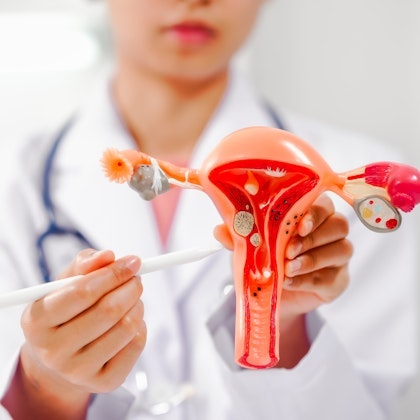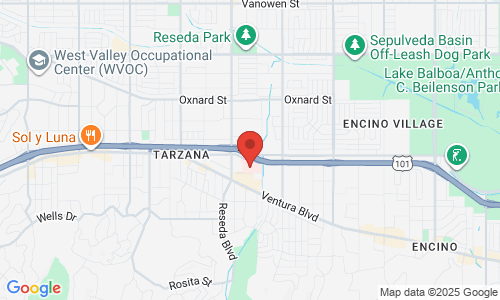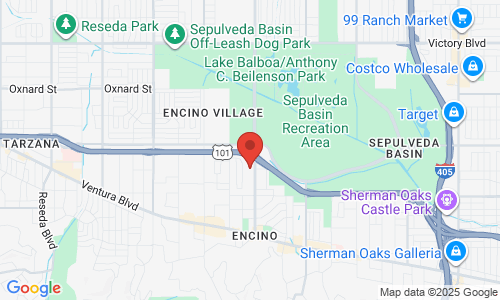IVF
If you are struggling to get pregnant, fertility treatments may seem overwhelming.
Drs. Michael Vermesh and Tannaz Toloubeydokhti offer IVF to help address a variety of fertility concerns. Explore how IVF at the Center for Fertility and Gynecology in Los Angeles, CA, can help you achieve your dreams of parenthood.
What Is IVF?
In vitro fertilization (IVF) is a method of assisted reproductive technology (ART). IVF can allow patients struggling with infertility to achieve their dreams of building a family.
During in vitro fertilization, eggs from the mother or donor are combined with sperm from the father or donor. Frozen sperm and eggs can also be used. The resulting embryo is transferred to the mother or surrogate's uterus. Any extra embryos can be frozen for use in another IVF cycle.
Learn More About IVF From Our Doctors

Types of IVF
Our fertility experts offer several types of IVF at our Los Angeles area clinics to meet your unique needs. IVF treatment options include traditional IVF, mini IVF, and natural IVF.
Mini IVF
Mini IVF is also known as minimal stimulation IVF. This means a lower dose of stimulation medications is used to produce fewer high-quality eggs. Typically, 1-6 eggs are collected during mini IVF.
Natural IVF
Natural IVF involves following the woman's natural menstrual cycle and retrieving only the egg or eggs her body naturally produces. Fewer medications are used than other IVF methods.
End of Year Promotion

IVF for LGBTQ
and Single Parents
/
In vitro fertilization is a great option for single patients and LGBTQ couples. Our Los Angeles area fertility clinics are judgment-free and dedicated to helping all types of patients expand their families. We offer a variety of services for LGBTQ couples and other hopeful parents.
Request an IVF Consultation Today
We understand just how emotional and difficult infertility can be. We are dedicated to helping patients overcome their struggles to realize their dreams of parenthood.
If you are struggling to conceive, or you are a modern family, find out if IVF is the right reproductive treatment for you. Request a consultation at one of our four Los Angeles area locations in Tarzana, Torrance, Bakersfield, or Thousand Oaks, CA, by filling out our online form. You can also call us at:
(818) 881-9800
Find Out Why Patients Choose The Center for Fertility and Gynecology
We're incredibly fortunate to have such a wonderful team at this office. Everyone here is not only exceptionally warm but also highly responsive. Dr. Vermesh holds a special place in our hearts. He played a pivotal role in bringing my husband into this world over 30 years ago, and now he's guiding us through the journey with our little nugget. His longstanding commitment and expertise speak volumes, and we trust him implicitly. Without a doubt, he's the best in his field.
View on GoogleI would highly recommend The Center for Fertility and Gynecology for IVF fertility treatments. I was referred to them by a friend and every step of the process was smooth and I felt very cared for. I rarely had to wait longer than 10 minutes to be seen for my appointments and everyone at the clinic was professional and friendly. Dr. Vermesh made me feel comfortable and he and the nursing team explained everything thoroughly.
View on Google"We are repeat customers"
IVF Success Rates
According to the Centers for Disease Control
Advancements in reproductive care have increased the success rates for IVF. However, success rates will vary based on various factors, including egg and sperm quality, the cause of infertility, and more. During your initial consultation at one of our Los Angeles area fertility clinics, we can discuss your individual needs and possible results.
Understanding IVF Costs
The cost of an IVF cycle will vary based on a variety of factors. A natural IVF cycle begins at $9,500. Once your doctor crafts a treatment plan, we can provide a more accurate quote. We offer financing options to help make IVF treatment more accessible.
Helping Patients Across Los Angeles
Doctor Vermesh is a miracle worker. He is an unbelievable doctor who I wish could stay with me for my whole pregnancy. I'm so grateful to have found such a wise, kind and patient doctor. I will be recommending him to all of the friends/family.
View on GoogleWow, let me start by expressing my gratitude to Dr. Tolou and her team for their exceptional support throughout my journey. From scheduling, medication, to travel arrangements, they were amazing. I knew from my first consultation that I was in the right place. I highly recommend the Center for Fertility and Gynecology.Traveling 4-5 hours for appointments, their flexibility and understanding made it all possible.
View on GoogleA Closer Look at an In Vitro Fertilization Cycle
Each cycle is unique, so it is important to remember that your IVF cycle may vary. Here is a look at a typical IVF cycle at our Los Angeles-area locations.
Frequently Asked Questions About IVF
Q. I had egg freezing performed. Can I use my frozen eggs during an IVF cycle?
A. Many patients choose to undergo egg freezing as a fertility preservation method. Patients who have previously undergone IVF can also choose to freeze extra eggs or embryos for later IVF cycles.
Q. What's the difference between conventional fertilization and ICSI, and which will I need?
A. Conventional fertilization involves placing an egg in a petri dish and combining it with sperm, allowing the sperm to fertilize the egg on its own. This process is closer to natural conception. ICSI, in contrast, is often recommended when there is a male-factor fertility issue impacting sperm quality or motility. With ICSI, a healthy-looking sperm is chosen and injected directly into the egg. The best type of fertilization will depend on your unique situation.
Q. Are there any risks when undergoing IVF?
A. IVF is a safe and effective procedure, but it is not without risks. It is important for patients to understand these risks before undergoing treatment. In addition to standard surgical risks, there is also the chance of ectopic pregnancy, ovarian hyperstimulation syndrome, and miscarriage.
Have more questions?
"A wonderful experience." More 5-Star Reviews
Dr.Tolou and her team were wonderful. Every step they where their and alway helping. It wasn’t easy to get pregnant for us, took almost a year. Glade I went here they just made everything so easy and comfortable.
View on GoogleI had a wonderful experience. The staff is kind, helpful, and easy to get ahold of. Dr. Tolou is knowledgeable and so sweet. She even gave me an impromptu, quick ultrasound because she saw I was anxious at my intralipid IV appointment. She’s just the best. Bittersweet that I left them after 8 weeks! Now I’m 15 weeks and thankful to God for doctors and staff like them.
View on Google















